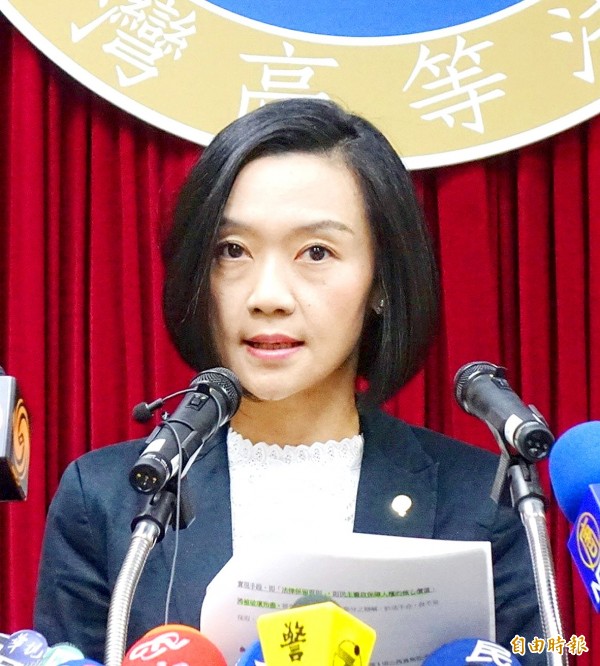《TAIPEI TIMES》 Ma found guilty of leaking information

Taiwan High Court spokeswoman Wu Wei-ya yesterday explains the court’s decision to convict former president Ma Ying-jeou for leaking classified information, overturning the Taipei District Court’s not guilty verdict. Photo: Fang Pin-chao, Taipei Times
EXECUTIVE POWER? The former president had undermined the Constitution and disregarded the rule of law, and is not a good model for the public, the court said
By Jason Pan / Staff reporter
The Taiwan High Court yesterday found former president Ma Ying-jeou (馬英九) guilty of leaking classified information obtained from Special Investigation Division (SID) wiretaps of two top lawmakers in 2013.
Ma is the second former Taiwanese president to be convicted of a crime, following former president Chen Shui-bian (陳水扁), since direct presidential elections started in 1996.
Overturning the Taipei District Court’s not guilty verdict delivered on Aug. 25 last year, the High Court said Ma contravened the Communication Security and Surveillance Act (通訊保障及監察法) and the Personal Information Protection Act (個人資料保護法), and was guilty of leaking confidential information under the Criminal Code.
He was sentenced to four months in jail, which can be commuted to a fine of NT$120,000.
Ma said he would appeal the ruling.
An investigation found that Ma had on Aug. 31, 2013, instructed then-prosecutor-general Huang Shih-ming (黃世銘) to hold a meeting regarding transcripts from telephone wiretapping, which were obtained during a judicial investigation into alleged improper lobbying involving Democratic Progressive Party (DPP) caucus whip Ker Chien-ming (柯建銘) and then-legislative speaker Wang Jin-pyng (王金平) of the Chinese Nationalist Party (KMT).
The probe found that Ma then divulged the classified information from the transcripts of a conversation between Ker, Wang and others to then-premier Jiang Yi-huah (江宜樺) and then-Presidential Office deputy secretary-general Lo Chih-chiang (羅智強).
During the trial, Ma claimed “special presidential executive powers,” which he said granted him the right to inquire about ongoing criminal investigations to prepare for potential crises that could destabilize the government.
Ma argued that he had the right to do so based on Article 44 of the Constitution, which states the president has the right to handle a dispute between two or more of the five branches of government.
However, the High Court ruled that the 2013 investigation into Ker and Wang did not involve a dispute between two or more branches of government and Ma was therefore not entitled to exercise the executive power.
Together with the new interpretation, the High Court judges ruled that there was clear evidence that Ma leaked confidential information from the investigation to Jiang and Lo.
“Ma was the nation’s leader at the time, but he had seriously undermined the Constitution and disregarded the rule of law, and clearly is not a model example for people to follow,” the High Court ruling said.
“The Constitution provides guarantees for the basic rights of the people, which the nation’s governmental offices and officials shall not infringe upon,” presiding judge Chiang Chen-yi (江振義) said.
“Ma, as head of the government, should have endeavored to uphold the constitutional framework and the rule of law,” Chiang said.
Huang, who led the now-defunct SID of the Supreme Prosecutors’ Office, was forced to resign from his post in March 2014 and was convicted in 2015 of divulging confidential information to Ma and Jiang.
Revelation of the SID’s wiretapping and secret surveillance of top political figures sparked a firestorm. Ma was accused of pursuing a personal vendetta against Wang and Ker, which led to the “September strife” of 2013, and subsequently to discord and infighting within the KMT.
新聞來源:TAIPEI TIMES
















